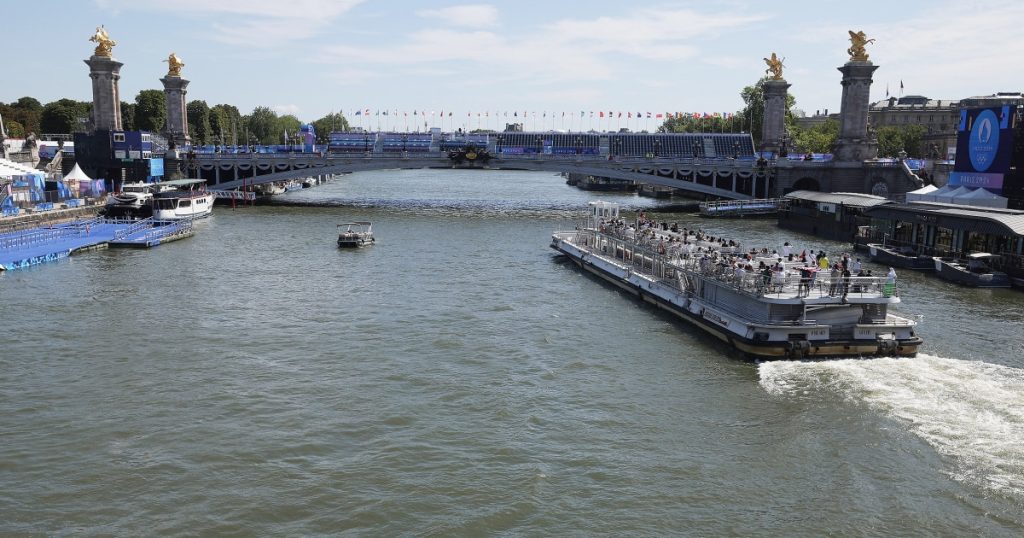Officials are closely monitoring bacteria levels in the Seine River as athletes are scheduled to swim in it during the 2024 Paris Olympics. The focus is on E. coli and enterococci, germs that indicate fecal contamination, posing risks for gastrointestinal illness, eye infection, and infected wounds. Heavy rain can cause untreated wastewater to overflow into the river, prompting concerns about water quality. Despite recent cancellations of swim training sessions due to elevated bacteria levels, organizers are confident that the events will go ahead as planned, anticipating an improvement in water quality.
The levels of fecal bacteria in the Seine at the proposed swimming starting point spiked on July 21, leading to health concerns for athletes. Dr. Amesh Adalja emphasizes that all fresh water bodies have some level of fecal contamination, highlighting the importance of understanding the risks of swimming in non-sterile water. The recent cancellation of training sessions underscores the variability of bacteria levels and the need to closely monitor water quality to ensure the safety of athletes participating in the Olympic events. Despite concerns raised by data on bacteria levels, organizers are optimistic about the situation improving as weather conditions change.
The Olympic events scheduled in the Seine River include triathlon and marathon swimming competitions. Recent weather conditions, such as heavy rain, can impact the levels of bacteria in the water due to untreated wastewater overflow. Paris Mayor Anne Hidalgo swam in the river to demonstrate its cleanliness after a long cleanup effort, highlighting ongoing concerns regarding the history of pollution in the Seine. Dr. Nicole Iovine explains the challenges posed by the design of old city sewage systems that contribute to contamination in the river during heavy rain, emphasizing the risks associated with human and animal waste.
Potential health dangers for swimmers in the Seine River include gastrointestinal symptoms, eye infections, and infected wounds due to exposure to high levels of fecal bacteria. Elite athletes participating in the Olympic events are at risk of minor illnesses, which can impact their performance during competition. Dr. Adalja warns of the possibility of more serious infections, such as leptospirosis, which can require antibiotics for treatment. Swimmers are advised to wash any cuts or wounds with clean water after their swim and be vigilant for symptoms of illness following exposure to contaminated water.
World Triathlon has protocols in place to assess water quality and make decisions regarding the safety of swimming events in the Seine River during the Olympics. Contingency plans include the option to postpone events or switch to a duathlon format if water quality does not improve. Marathon swimming may be relocated to the Vaires-sur-Marne Nautical Stadium as a backup venue to ensure the competition can still take place. Efforts to clean the Seine River for the Olympics have involved significant investments in sewage system upgrades and the creation of an overflow tank to prevent untreated wastewater discharge into the river during heavy rain.
Despite ongoing concerns about bacteria levels and water quality in the Seine River, officials remain committed to hosting the swimming events as planned for the 2024 Paris Olympics. The importance of monitoring and assessing water quality to ensure the safety of athletes participating in the Olympic competitions is paramount. Contingency plans are in place to address any potential issues regarding bacteria levels and to safeguard the health and well-being of the athletes. The history of pollution in the Seine and the ongoing efforts to improve water quality highlight the complex challenges associated with hosting aquatic events in a historic river environment.


